Senior Living
/Health
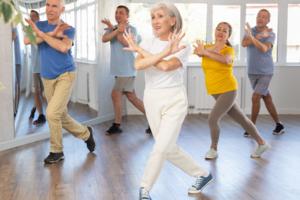
Steve Lopez: Perks of old age: Nobody says, 'Grandpa, would you please move this refrigerator?'
Aging has its drawbacks, if you hadn't noticed.
But are there any benefits to getting older, other than the fact that it beats the alternative?
I asked that question of readers a few weeks ago, and apparently the answer is yes, yes, yes, yes, and yes again, according to the hundreds who chimed in.
"When I asked for pre-boarding on a flight ...Read more
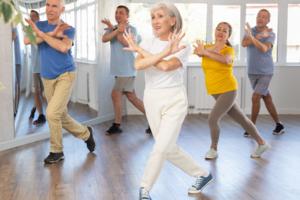
Steve Lopez: Perks of old age: Nobody says, 'Grandpa, would you please move this refrigerator?'
Aging has its drawbacks, if you hadn't noticed.
But are there any benefits to getting older, other than the fact that it beats the alternative?
I asked that question of readers a few weeks ago, and apparently the answer is yes, yes, yes, yes, and yes again, according to the hundreds who chimed in.
"When I asked for pre-boarding on a flight ...Read more

40 years of retirement: Many want it, but few might be able to have it
Around 12.5% of Americans plan to stop working at age 60. Most are also hoping they live to see 100. Financing 40 years of retirement, however, may prove unattainable for many.
Corebridge Financial recently conducted a survey of 2,300 adults to observe how Americans are financially planning for their retirements. Roughly 40% of respondents said...Read more

Palliative care underused for people with heart disease, report finds
Palliative care – which can include changes to medication – can alleviate symptoms and improve quality of life for people with heart disease. But the practice is greatly underutilized, especially among underrepresented racial and ethnic groups, according to a new report.
The scientific statement from the American Heart Association reviews ...Read more

From near death to the Senior Olympics
Dan Williams of Reston, Virginia, was under a lot of stress when he felt a pounding sensation in his chest.
He thought it was probably pneumonia and knew he should go to the hospital to get checked out.
But it was also just one more thing to worry about, on top of a mounting pile of professional and financial woes. Williams worked in ...Read more
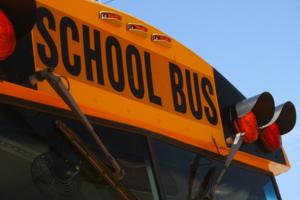
No degree required: AARP reveals part-time jobs great for retirees
Retirement doesn’t have to mean barely getting by on a fixed income. There are part-time jobs aplenty that are perfect for older adults in need of some extra cash.
And AARP, the nonprofit organization founded by a retired teacher, recently released a report of the best side hustles for retirees that require no college degree.
School bus ...Read more

Lack of affordability tops older Americans’ list of health care worries
What weighs most heavily on older adults’ minds when it comes to health care?
The cost of services and therapies, and their ability to pay.
“It’s on our minds a whole lot because of our age and because everything keeps getting more expensive,” said Connie Colyer, 68, of Pleasureville, Kentucky. She’s a retired forklift operator who ...Read more

Travel Trending with Kathy Witt: Kentucky road trips lead to footlights, curious sights and beachy delights
Theater beneath the stars, irresistible roadside attractions and inland beaches — Kentucky summers are made for road trips to historic and charming small towns that are big on fun and nostalgia, as well as the strange and unusual.
Here are some road trips that lead to memorable adventures.
Dinner and a show
The sun sets and the stage lights...Read more

Travel Trending with Kathy Witt: Kentucky road trips lead to footlights, curious sights and beachy delights
Theater beneath the stars, irresistible roadside attractions and inland beaches — Kentucky summers are made for road trips to historic and charming small towns that are big on fun and nostalgia, as well as the strange and unusual.
Here are some road trips that lead to memorable adventures.
Dinner and a show
The sun sets and the stage lights...Read more
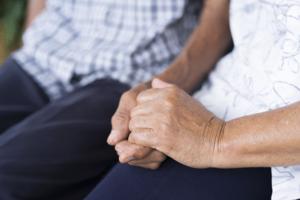
Older women are different than older men. Their health is woefully understudied
Medical research has shortchanged women for decades. This is particularly true of older women, leaving physicians without critically important information about how to best manage their health.
Late last year, the Biden administration promised to address this problem with a new effort called the White House Initiative on Women’s Health ...Read more
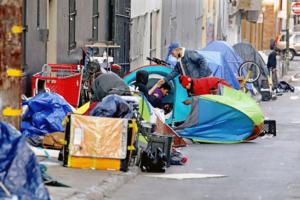
Lack of housing is pushing more seniors onto the streets. That's on all of us
All homelessness is troubling. But there is something particularly unsettling about older people — those age 50 and above — falling into homelessness after decades of lives filled with homes and jobs, faced with spending their last years on a sidewalk.
Yet the numbers of older homeless people are rising across the country. The proportion ...Read more
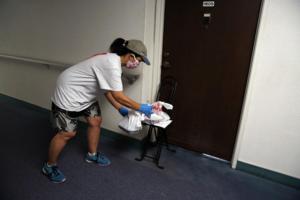
Pandemic-era meal delivery program is set to end. Thousands of LA seniors could go hungry
LOS ANGELES — Tim Icely did everything he was supposed to do to save up for retirement. He worked 27 years in hospitality and hotel management before he was furloughed during the pandemic and forced to retire at 74.
Icely is now 76, single with no dependents and no spouse, living on his own in Van Nuys. Half of his Social Security check goes ...Read more
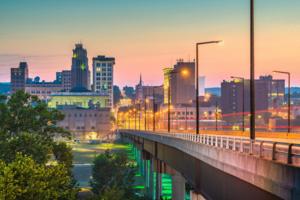
US News and World Report’s most affordable places to retire in 2024
Last September, the cheapest U.S. housing market offered homes at $229,000, while the priciest market asked $787,000. That’s why retirees looking to move somewhere more affordable can rest assured there are communities that likely offer homes for less than their area — much less.
Of course, choosing an affordable place to retire is about ...Read more
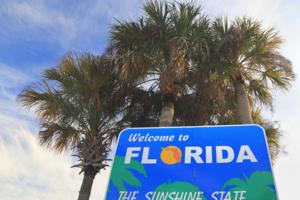
The top pros and cons of retiring in Florida
From armadillo infestations to natural disasters, the Sunshine State isn’t always the postcard-perfect retirement getaway it’s cracked up to be. Still, transplants are flocking to Florida in massive numbers.
According to a recent NBC News report, more than 700,000 people moved to Florida in 2022 alone — making it the second-fastest-...Read more

These Black veterans served in multiple wars. Now they meet daily at a Miami McDonald’s
MIAMI -- For more than 20 years, a group of Black military veterans has gathered at a McDonald’s in North Miami-Dade for breakfast every morning of the year, except for Christmas.
The group, which can reach nearly 20 people on a good day, holds court at table 112 starting around 9 a.m., though they often stay until long after the menu has ...Read more

He was the oldest man in the US, and his loving caretaker was with him to the end
The oldest male in the United States was a man of many appetites, even at 110, and his live-in caretaker did her best to feed them.
Rosario Reyes would make banana pancakes for Morrie Markoff, and he would plead for more syrup. She'd bring him a corned beef sandwich, followed by a piece of lemon meringue pie, and reluctantly give in when he ...Read more

Steve Lopez: He was the oldest man in the US, and his loving caretaker was with him to the end
The oldest male in the United States was a man of many appetites, even at 110, and his live-in caretaker did her best to feed them.
Rosario Reyes would make banana pancakes for Morrie Markoff, and he would plead for more syrup. She'd bring him a corned beef sandwich, followed by a piece of lemon meringue pie, and reluctantly give in when he ...Read more

This Marine dropped out of school at 17. At 72, he's fulfilling his promise to his mom to graduate
PHILADELPHIA — Call him the Rip van Winkle of Benjamin Franklin High: Joseph Bond dropped out of high school at age 17, as war raged in Vietnam, leaving without a diploma.
Over 55 years, he served his country, built a career, a family, a life. But as he hit his 70s, Bond remembered the promise he made to his mother before she died: He vowed ...Read more
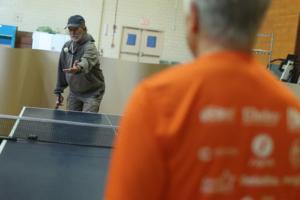
Older men die by suicide at steep rates. Here's how the VA is trying to change that
LOS ANGELES -- It was a Friday morning and George McCune had roused himself to make the 2.4-mile trip from his Northridge home to the Veterans Affairs campus in North Hills.
The 77-year-old was greeted there that March day by the usual crew training for the Golden Age Games: There was Roger, 82, who had piled up medals in javelin, discus and ...Read more

This Marine dropped out of school at 17. At 72, he's fulfilling his promise to his mom to graduate
PHILADELPHIA — Call him the Rip van Winkle of Benjamin Franklin High: Joseph Bond dropped out of high school at age 17, as war raged in Vietnam, leaving without a diploma.
Over 55 years, he served his country, built a career, a family, a life. But as he hit his 70s, Bond remembered the promise he made to his mother before she died: He vowed ...Read more





